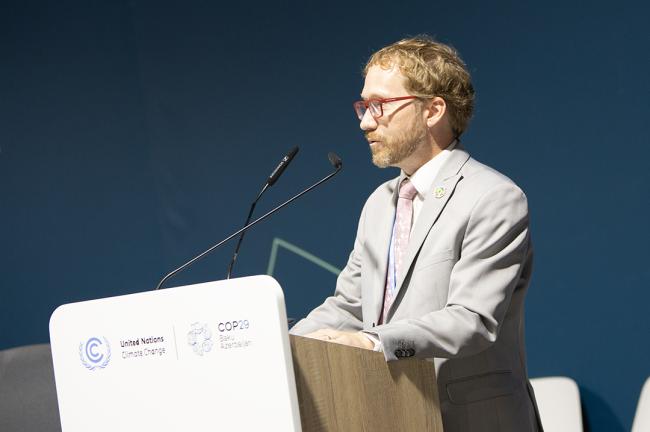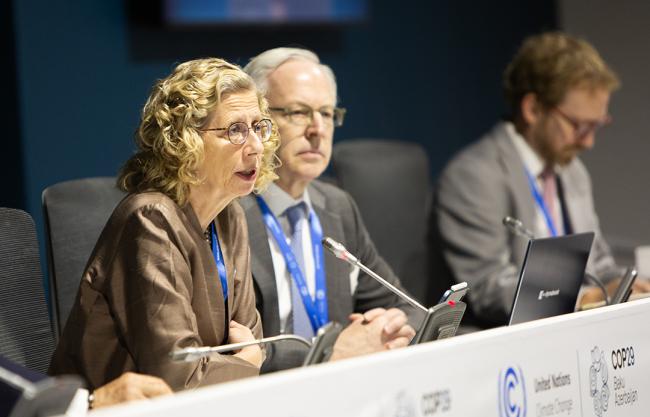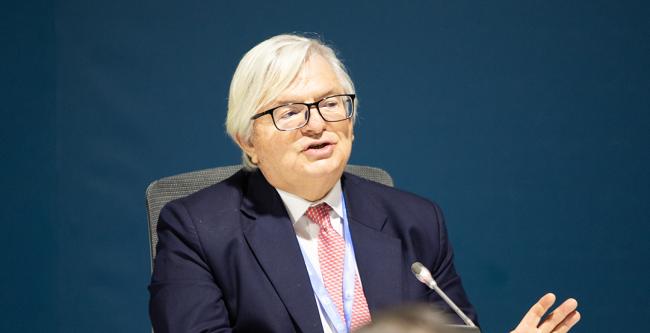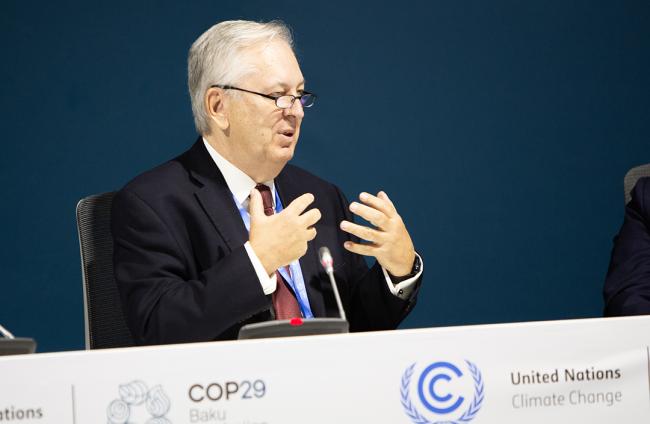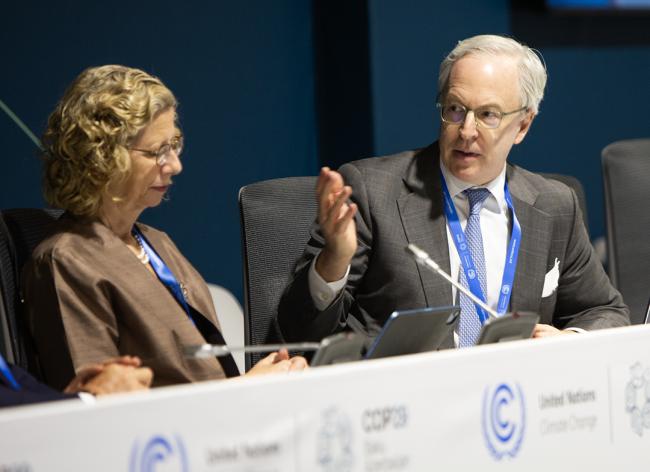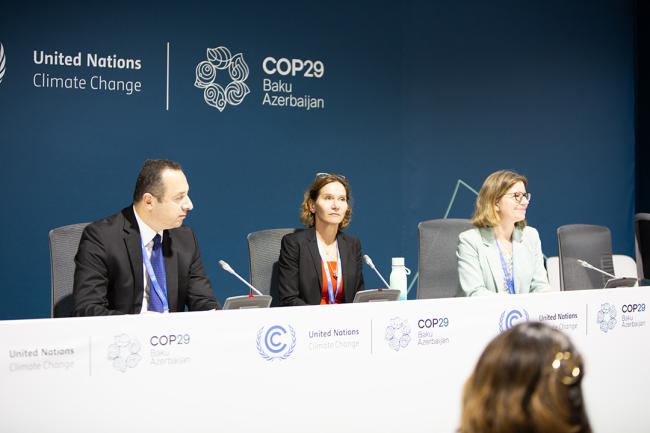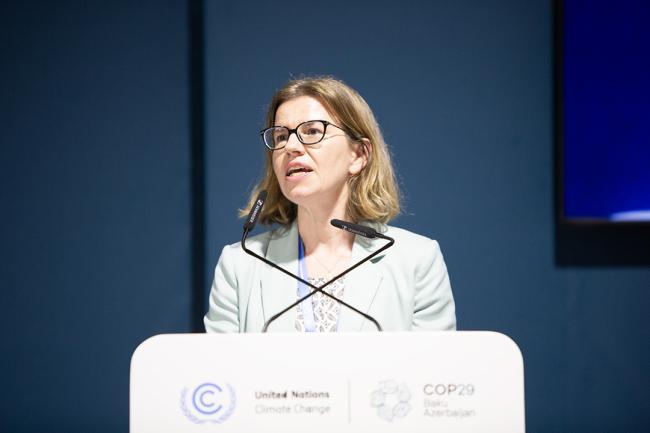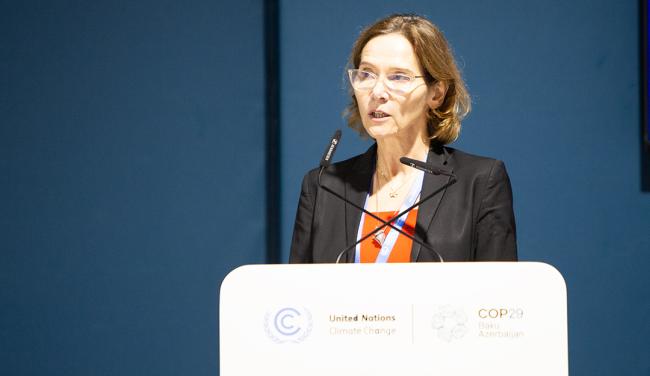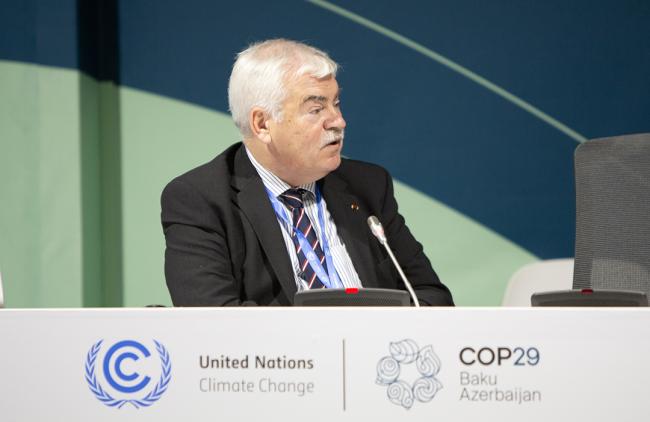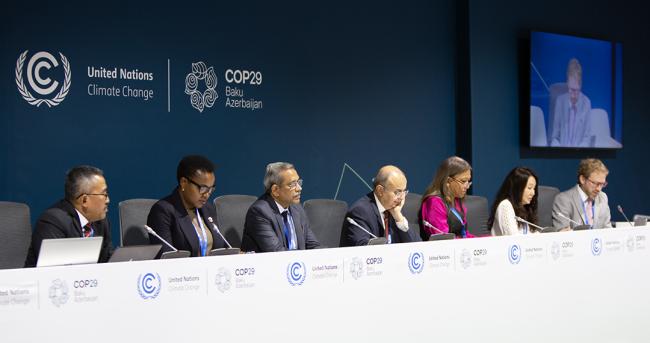About
A global surge in lawsuits is reshaping the battle for climate action, and this side event highlighted key international precedents and offered tools to champion climate justice via the courts.
Climate litigation is on the rise around the world, with civil society testing judicial waters to hold governments and companies liable for environmental harms. However, judicial expertise has not always kept pace with the evolving legal landscape of case precedents around the world. This event offers an opportunity for judges and legal experts to discuss their role in finding solutions to climate change-related disputes and to share knowledge on innovative legal mechanisms and judicial perspectives on climate litigation.
Nicholas Bryner, Global Judicial Institute on the Environment (GJIE), moderated the first panel.
Inger Andersen, Executive Director, UN Environment Programme (UNEP), outlined key findings from the 2023 UNEP Emissions Gap Report and stressed the urgent need for climate action. She noted the evolving role of the judiciary as civil society turns to courts to force governments and businesses to act, particularly in the area of climate. She highlighted other trends in climate litigation such as the recognition of environmental rights in multilateral frameworks, and called for commitment to the rule of law and institutional support for judges.
Chief Justice Antonio Herman Benjamin, National High Court, Brazil, and President, GJIE, noted the importance of this side event, as it gathered judges and legal experts to discuss evolving trends in climate change. He mentioned, for example, the growing relevance of climate change issues for the judiciary and the need for peer-to-peer exchanges among judges on this matter.
Luiz Alberto Figueiredo Machado, Ambassador for Climate Change, Brazil, said the role of judges in addressing climate-related disputes is evolving past merely applying and interpreting the law. He believed that judges must be proactive and “attuned to the requirements and complexities” of fighting climate change to ensure climate justice is achieved.
Tom Clark, Asian Development Bank (ADB), discussed ADB’s work as a knowledge partner of the judiciary, citing capacity building as a means to enhance judges’ understanding of the science behind climate change and environmental rights. He described ADB’s judicial training programme in Asia, which has provided a platform for judges to come together and discuss judicial-solving techniques, experiences, and best practices in climate change-related disputes.
Chingiz Asgarov, Deputy Chief Justice, Supreme Court, Azerbaijan, moderated the second panel. Highlighting the need to protect the environment, he pointed to Azerbaijan’s extensive environmental protection legislation and the importance of raising public and court awareness of environmental issues.
Christine Adam, UN Framework Convention on Climate Change (UNFCCC) Secretariat, pointed out the growing integration of human rights in climate action that has now become the basis of claims before courts, both domestic and international courts and tribunals. She cited recent trends in climate litigation, which include: integration of human rights in just transition; meaningful engagement with Indigenous Peoples and local communities; and inclusivity in policies and legal frameworks.
Christina Voigt, Chair, International Union for Conservation of Nature World Commission on Environmental Law (IUCN WCEL), discussed the recent decisions and advisory opinions of international tribunals, citing, in particular, the advisory opinion issued by the International Tribunal Law of the Sea. The Law, she explained, states that greenhouse gas emissions absorbed by the Ocean constitute marine pollution, and parties to the UN Convention on the Law of the Sea are obliged to take necessary steps to protect and preserve marine environments.
Juliette Biao, Director, UN Forum on Forests (UNFF) Secretariat, moderated the third panel. She highlighted the need for building a stronger collective understanding of how courts can best respond to the challenges of climate litigation.
Justice Benjamin discussed the need to revisit legal standards on several issues, including: legal standing to sue; negligence approach and strict liability approach to climate litigation; emergency measures; substantive and procedural law; and statute of limitations.
Luc Lavrysen, President of the Constitutional Court, Belgium, and President, European Union Forum of Judges for the Environment (EUFJE), discussed several landmark cases before international courts and tribunals. He cited the example of the decision of the Court of Appeals in The Hague, Netherlands, to overturn the ruling that required Shell to cut emissions to 45% by 2030 from 2019 levels. He pointed out, however, that the judgment still recognized that companies like Shell are contributors to the climate problem and have the duty of care to curb emissions even if this obligation is not expressly laid out in the law of the country where the company operates.
The session then proceeded to a roundtable discussion on the reflections of several Supreme Court justices from India, Nepal, Indonesia, Mozambique, and Pakistan on the ongoing COP 29 discussions and on the discussion of the previous panelists.
Organizers: GJIE, ADB, UNEP, and EUFJE in cooperation with Brazil, International Council of Environmental Law, and IUCN WCEL.
Contact: Victor Tafur | vtafur@law.pace.edu
Website: https://icelinternational.org/
To receive free coverage of global environmental events delivered to your inbox, subscribe to the ENB Update newsletter.
All ENB photos are free to use with attribution. For 2024 UN Climate Change Conference Baku - Side Events , please use: Photo by IISD/ENB | Angeles Estrada Vigil

